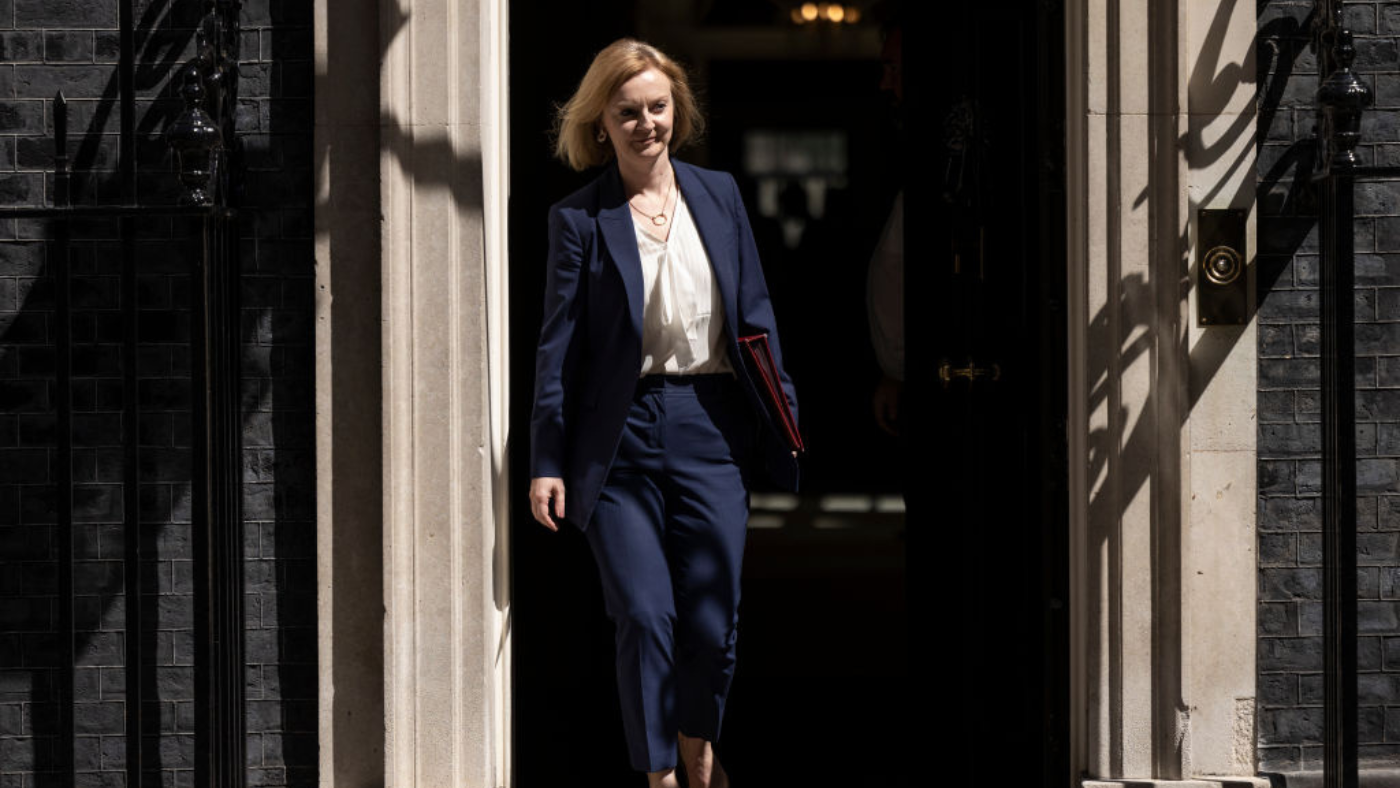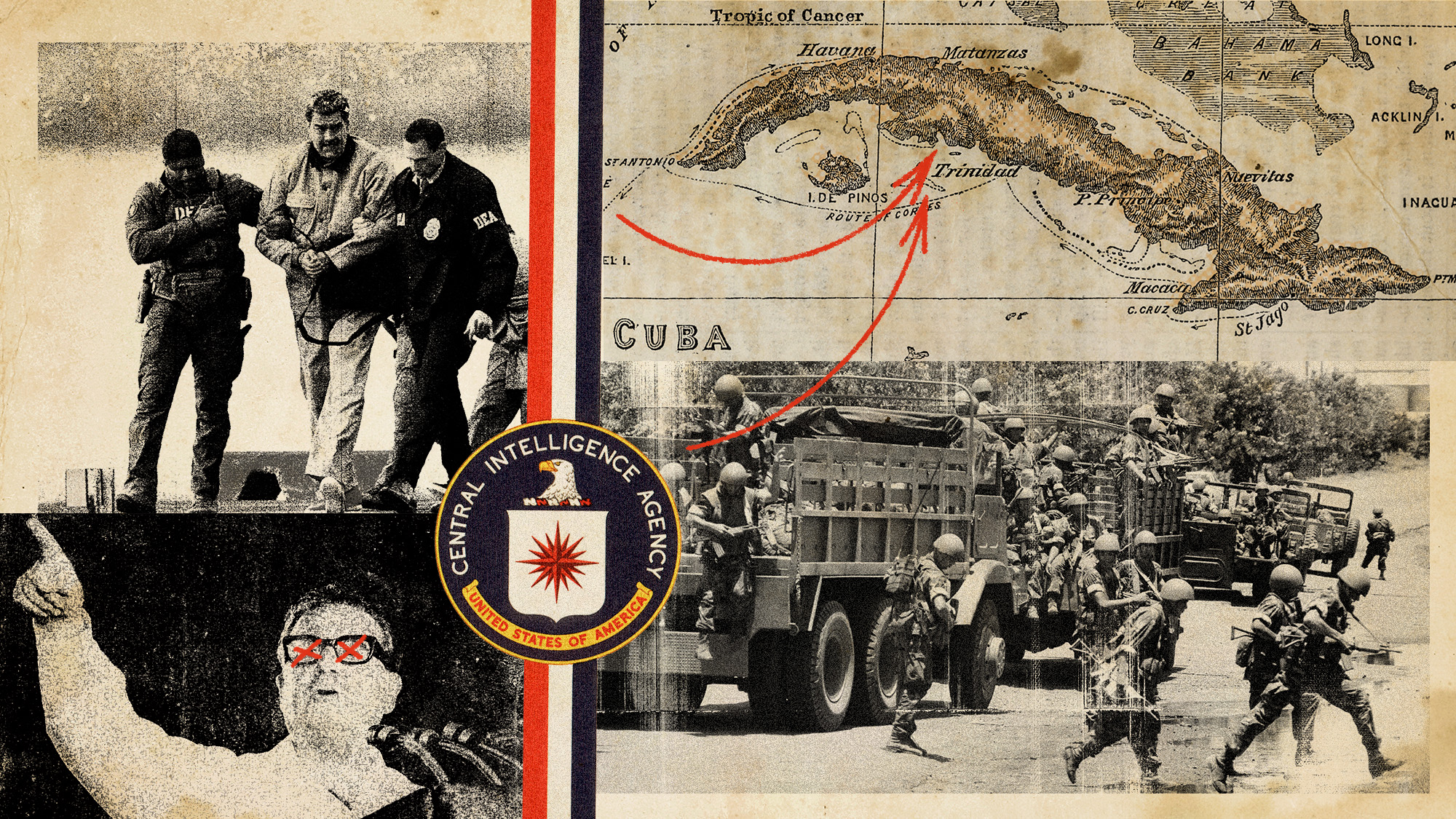Five urgent questions facing Liz Truss as PM
‘Daunting’ in-tray of challenges awaits the new Tory leader, from dealing with the cost-of-living crisis to uniting the Conservative Party

A free daily email with the biggest news stories of the day – and the best features from TheWeek.com
You are now subscribed
Your newsletter sign-up was successful
Liz Truss faces a long list of tough challenges after taking office as prime minister tomorrow, following a summer of strikes, water shortages and soaring inflation.
Truss beat rival Rishi Sunak by securing 57% of the vote, racking up 81,326 to his 60,399 – a lower margin than any previous Tory leader chosen by party members.
And she may have “one of the shortest political honeymoons in modern history” as she begins tackling her “daunting in-tray”, said the Financial Times (FT). This summer’s “lengthy political vacuum” means the new PM will “need to move fast to get to grips with policy challenges of huge proportions”.
The Week
Escape your echo chamber. Get the facts behind the news, plus analysis from multiple perspectives.

Sign up for The Week's Free Newsletters
From our morning news briefing to a weekly Good News Newsletter, get the best of The Week delivered directly to your inbox.
From our morning news briefing to a weekly Good News Newsletter, get the best of The Week delivered directly to your inbox.
After taking over from Boris Johnson, Truss will face a country that “clamours for answers to huge questions” that his “caretaker government” had felt “unempowered to take on”, said the BBC’s political editor Chris Mason.
Here are five of the most pressing questions that the UK’s new leader will need to address.
1. What cost-of-living help will UK households get?
Truss faced growing calls during the leadership campaign to outline her plans for tackling the cost-of-living crisis, as inflation hit double digits and fear grew over soaring energy prices. In an article in the Daily Mail last month, Johnson wrote that “whoever takes over from me” would announce “another huge package of financial support” for struggling UK households.
A spokesperson for Truss said last week that as PM she would “ensure people get the support needed to get through these tough times” – but also insisted that no decisions would be made until the end of the leadership contest.
A free daily email with the biggest news stories of the day – and the best features from TheWeek.com
However, according to The Times, her “allies and officials” have held talks with energy industry leaders “to discuss plans for a gas and electricity price freeze”.
The Telegraph reported last week that the “menu of options” that the Treasury will present to the new PM also includes a “nuclear” VAT cut of 5% that could save the average household more than £1,300 annually. Truss was also said to have been considering extending a 5p cut in fuel duty that was due to end in March.
And at the final hustings event in the leadership election, she said there would be “no new taxes” if she became PM.
2. How will she address urgent foreign policy issues?
The “clearest idea” of what Truss’s leadership could be like is when it comes to foreign affairs, said The Spectator’s Katy Balls. As foreign secretary, Truss “was held back by Boris Johnson”. As PM, she’s likely to “take a more muscular stance against aggressors”.
Johnson’s “vigorous support for Ukraine is not in any great jeopardy”, said The Economist. Visiting Kyiv would be “a priority and her first foreign call” would be to President Volodymyr Zelenskyy, said Balls. But her stance could be “more hawkish” than Johnson’s, as Truss “abhors suggestions of Ukraine cutting any peace deal”.
Relations with the EU “hit a nadir” under Johnson, said the FT. And though her predecessor gave French President Emmanuel Macron’s proposal of a European “political community” “some lip-service”, Truss is “unlikely” to do the same, said Balls. During the hustings, she said the only thing the EU understood was “strength” – and that the “jury is out” on whether Macron is a “friend or foe” to the UK.
But “the first major parliamentary test” Truss is likely to face is “a full-frontal attack” on the government’s plans to rewrite the Northern Ireland Protocol, said Politico. The “explosive” protocol bill is “facing a real battle” in the House of Lords, where it is seen as “an executive power grab”, giving UK ministers “the power to ignore crucial parts of the painstakingly negotiated Brexit deal”.
“The stakes are high, and peers are in no mood to compromise,” said the news site.
3. Can she calm the public sector crisis?
Truss “will immediately face the wrath of union leaders” who have “flexed their muscles” over pay and working conditions during a series of walkouts this summer, said the FT.
In August, the former foreign secretary promised to stop the “militant trade unions holding our country to ransom” if she became leader.
She plans to create new laws “within a month of taking office” that would introduce “minimum service levels on critical national infrastructure” to keep transport and other services running, the Daily Express said. Ballot thresholds would also be raised “to make it harder for strike action to take place across all sectors”.
With thousands of people waiting for hospital treatment and the NHS facing a staffing crisis, addressing the health service’s “creaking infrastructure” will also be essential, said the Express. Truss has said she wants to remedy “micro-management” within the system, and has vowed “to reduce Whitehall control”.
But Richard Murray, head of health think-tank the King’s Fund, has warned that the PM’s plan to spend £13bn of government funding allocated to clearing waiting list backlogs on social care instead would be “robbing Peter to pay Paul”, The Guardian reported.
4. How will she secure the UK’s energy supplies?
The challenge at the root of the cost-of-living crisis is how to protect the UK from fluctuations in the wholesale price of oil and gas. The Times reported last week that Truss is set to approve as many as 130 new oil and gas drilling licences in the North Sea as “one of her first acts as prime minister”. This would be part of a “two-pronged approach” to secure “more gas” from Norway and maximise domestic production.
However, these “exploration” licences “are unlikely to bring prices down in the immediate future”. Environmental campaigners argue that oil and gas produced in the UK will be sold on a global marketplace, thereby “offering little benefit to domestic consumers”.
Meanwhile, Truss has been “silent on insulation or energy efficiency investments” that would lower fossil fuel dependency and “actually bring down bills”, said Donnachadh McCarthy in The Independent. She said she was against expanding the UK’s renewable energy network, particularly on solar farms. But soon her “holiday from reality will have to end”, said Paul Mason in The New European.
“Throwing out insults at the entrepreneurs and – yes – farmers who have rapidly scaled up Britain’s solar capacity in the years since subsidies were withdrawn is the kind of thing you do if there are no civil servants to remind you of the facts,” Mason said.
5. Can the Conservative Party be united?
In July, a televised Tory leadership debate “exposed the party’s brutal divisions”, said Rachel Wearmouth in The New Statesman. And the debate made clear that the new PM will inherit “a fearful party deeply divided about what lies ahead”.
According to YouGov polling, 84% of Conservative voters believe the Tory party is divided, with just 5% saying it is united. After 12 years in power, four general elections and now a fourth prime minister, “the exhaustion may be too great and the rifts too deep for the party to recover”, said The Economist.
Uniting the “bitterly divided party is fundamental”, said The Times. “Far from abating, the resentment” between the Truss and Sunak camps “only intensified” as their leadership campaigns “dragged on” this summer.
“Truss believes that there is a path to unity,” the newspaper said. But a senior ally told the paper that they think uniting the Tories is “beyond doable”.
Sunak’s supporters “will move against her”, they continued. “This winter is going to be awful.”
Julia O'Driscoll is the engagement editor. She covers UK and world news, as well as writing lifestyle and travel features. She regularly appears on “The Week Unwrapped” podcast, and hosted The Week's short-form documentary podcast, “The Overview”. Julia was previously the content and social media editor at sustainability consultancy Eco-Age, where she interviewed prominent voices in sustainable fashion and climate movements. She has a master's in liberal arts from Bristol University, and spent a year studying at Charles University in Prague.
-
 6 of the world’s most accessible destinations
6 of the world’s most accessible destinationsThe Week Recommends Experience all of Berlin, Singapore and Sydney
-
 How the FCC’s ‘equal time’ rule works
How the FCC’s ‘equal time’ rule worksIn the Spotlight The law is at the heart of the Colbert-CBS conflict
-
 What is the endgame in the DHS shutdown?
What is the endgame in the DHS shutdown?Today’s Big Question Democrats want to rein in ICE’s immigration crackdown
-
 How corrupt is the UK?
How corrupt is the UK?The Explainer Decline in standards ‘risks becoming a defining feature of our political culture’ as Britain falls to lowest ever score on global index
-
 ‘The mark’s significance is psychological, if that’
‘The mark’s significance is psychological, if that’Instant Opinion Opinion, comment and editorials of the day
-
 The Mandelson files: Labour Svengali’s parting gift to Starmer
The Mandelson files: Labour Svengali’s parting gift to StarmerThe Explainer Texts and emails about Mandelson’s appointment as US ambassador could fuel biggest political scandal ‘for a generation’
-
 Three consequences from the Jenrick defection
Three consequences from the Jenrick defectionThe Explainer Both Kemi Badenoch and Nigel Farage may claim victory, but Jenrick’s move has ‘all-but ended the chances of any deal to unite the British right’
-
 The high street: Britain’s next political battleground?
The high street: Britain’s next political battleground?In the Spotlight Mass closure of shops and influx of organised crime are fuelling voter anger, and offer an opening for Reform UK
-
 A running list of the international figures Donald Trump has pardoned
A running list of the international figures Donald Trump has pardonedin depth The president has grown bolder in flexing executive clemency powers beyond national borders
-
 A running list of US interventions in Latin America and the Caribbean after World War II
A running list of US interventions in Latin America and the Caribbean after World War IIin depth Nicolás Maduro isn’t the first regional leader to be toppled directly or indirectly by the US
-
 The MAGA civil war takes center stage at the Turning Point USA conference
The MAGA civil war takes center stage at the Turning Point USA conferenceIN THE SPOTLIGHT ‘Americafest 2025’ was a who’s who of right-wing heavyweights eager to settle scores and lay claim to the future of MAGA